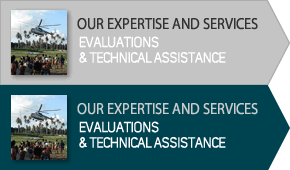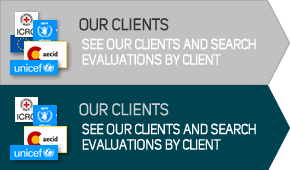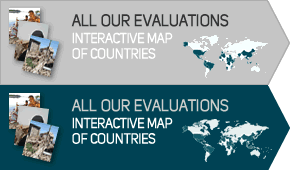April 11, 2013
The Swedish International Development Cooperation Agency (SIDA) and one of its long-standing partners in contexts strained by armed conflicts, the International Committee if the Red Cross (ICRC) have commissioned InDevelop, in collaboration with GRM and DARA, a study on value for money in the humanitarian sector.
While widely used in the private sector, the term “Value for Money” is also being used increasingly by humanitarian donors in their funding decision-making processes. The global financial crisis and pressure on those spending taxpayers’ money demand greater accountability and transparency around public spending on humanitarian crises.
The study aims to develop a common understanding on the concept “Value for Money” to substantiate the dialogue between ICRC and Sida. Outcomes include:
- A proposed definition of Value for Money in the humanitarian sector on the basis of ICRC’s operational and management practice.
- A commonly agreed vocabulary around the notion.
- Criteria, methods and tools to measure it, as much as possible based on data collected and managed in the framework of the existing ICRC’s management framework and practices.
- An assessment of the possible unintended risks of institutionalising the use of these proposed “value for money” measurement methods and tools within ICRC management practices and also for the purposes of audits by donors, and recommendations for ways to mitigate such risks.
- Suggestions about next steps for further developing the wider debates about value for money in the humanitarian aid community.
The study will run from March to September 2013. The team is composed of Ester Dross, Valsa Shah, Jock Baker and Riccardo Polastro.




Share this